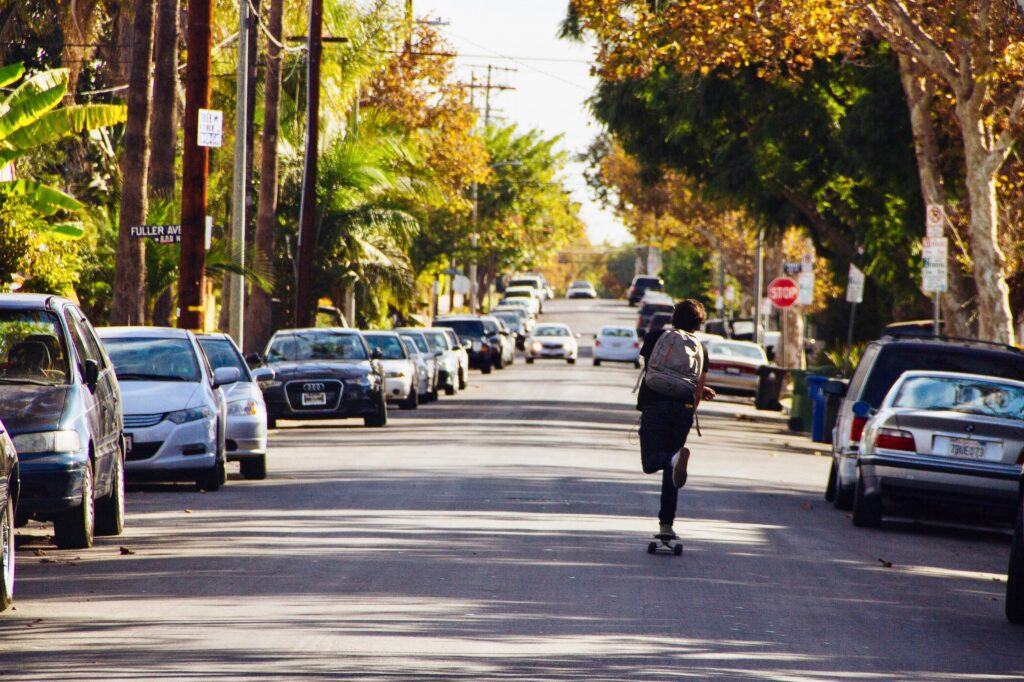Preparing our children for safety can be as simple as giving them permission to say “no” and trust their instincts.
There are dangers in our world; and, while many of us know that, we need to understand that it is not a remote danger only seen on news reports from different far-off cities—it’s closer to home than we are comfortable to admit. This does not mean that we need to live our lives in anxiety or paranoia; neither is fruitful. Instead, when faced with unpleasant realities, we should respond with wisdom and preparation. But, first, we must understand the dangers.
According to a report published by the National Institute of Justice in January 2025, Arizona was listed as within the top 5 states as having the highest number of missing persons (this is an upswing from previous reports in which Arizona was ranked as sixth). In the list of top 10 cities with the highest number of missing persons cases, the city of Phoenix was ranked seventh. However, when considering the numbers per capita, Arizona is not only second worst in the country, we are also experiencing the issue at a rate 2x that of the national average.
Nationwide, 62% of all reported missing persons cases involve those who are younger than 20-years old, and 42% of all cases reported nationwide involve those who are younger than 10.

The specifically reported numbers vary from agency to agency, but it is commonly agreed that nearly half a million children go missing in this country every year. That’s over 1,200 kids every day! To say it even more clearly, in the United States, a child is abducted or is reported missing every 40 seconds.
This should not merely serve as a cause for alarm—it should also serve as a call to respond with wisdom and preparation. Therefore, we must ask ourselves a couple questions:
- Are we, ourselves, as adults and parents, mentally prepared to assess and meet the dangers that are present within our community?
- Are we preparing our children to be safe and protected?
Several years ago, I had the privilege of working with a wonderful patient; our clinical relationship started because she, as a now adult, was ready to address her childhood trauma. As a child, she was smart, well-behaved, well-informed and from a safe and loving family; there was nothing in her life that would indicate higher risk factors for exploitation or abduction. Regardless, it happened. She was not trafficked or reported as a missing person—she was sexually exploited. She was 12. On a typical day, while simply walking home from school, a vile monster took advantage of her kindness, her willingness to help anyone, and lured her into his home.
We want our children to be kind and helpful, well-behaved and good-hearted; but, children also need to be prepared. And, while this may sound overly simple, healthy preparation may require nothing more than permission.
Give your children permission to keep themselves safe.
Give your children permission to be wise.
One night, when on a run with my children, we came across a man who had just been attacked by a couple large dogs who were loose in the neighborhood. After ensuring that he was okay and able to safely make it home (although he was covered in blood from multiple injuries, his wounds were not severe), the kids and I proceeded—we had no choice but to get home and do so with alertness and caution. It occurred to me that I had never discussed this scenario with my children; I have always kept my eyes open to potential dangers and was always present to protect them if needed. But, were my children prepared if required? My kids are kindhearted with an eagerness to serve; they have grown up around large dogs and have no fear of animals—they love animals. So, when walking them through the potential scenario of a dog attack, I should not have been shocked to hear that their first inclination was to help the loose dog return home safely. When pressed, the second response was to run to the safety of their own home (half a mile away). I realized that I had never expressed to my children that they have my explicit permission to fight back—to defend themselves with potentially life-saving intensity.
Children need to know that they have permission to keep themselves safe. We want them to be quick to charitable service, gentle in disposition, obedient to authority; but, they also need to know that they have our explicit permission to literally run away from threats, to say “no” and create boundaries and barriers when their instincts tell them they are in danger, and to fight with relentless and violent intensity when required. My patient did not experience trauma because she was naive or simple—it was because she was good, wanted to do good, and did not know she had the permission to violently defend herself.
This simple discussion can be had at varying age-appropriate degrees based on the real-life circumstances of their everyday lives, but it needs to be had. There are, at any given point, over 500,000 predators online everyday with the intentional sole purpose of grooming and luring children. Unfortunately, there are those in the community who are waiting and watching, like hidden monsters lying in wait, for moments of nefarious opportunity. We do not need to be anxious or paranoid, but we do need to be alert and prepared.
Give your children permission to keep themselves safe. Give your children permission to be wise.
